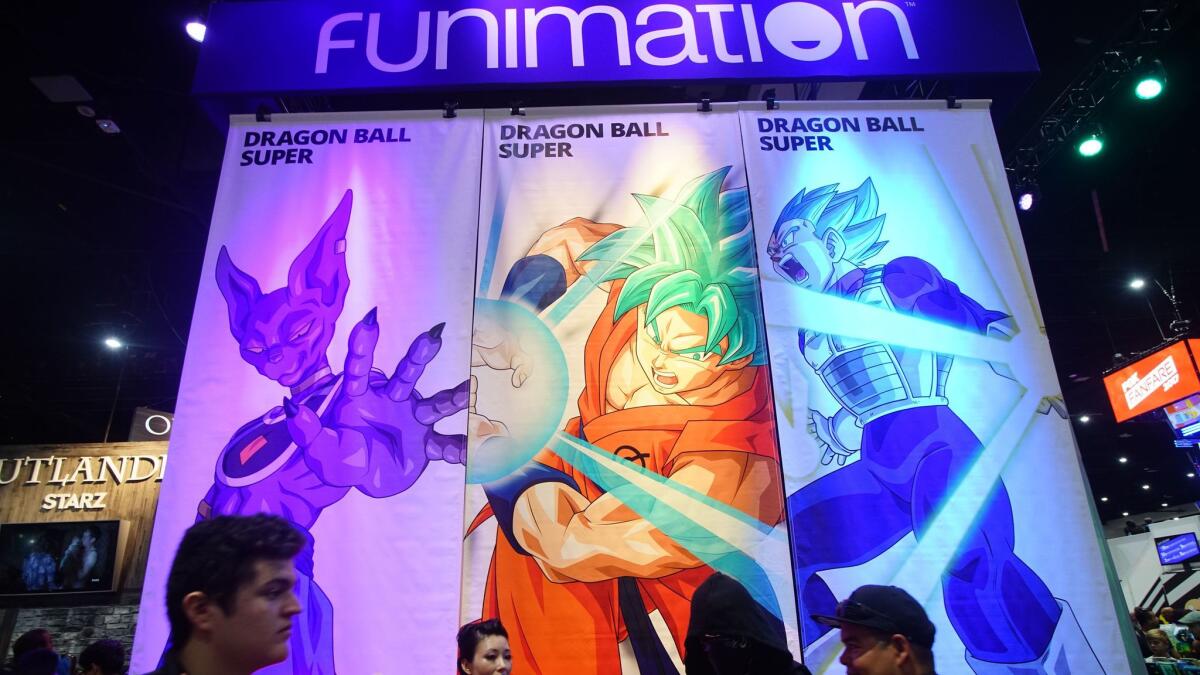Sony acquiring majority stake in anime distributor Funimation

Sony is strengthening its position in the anime market by acquiring a majority stake in Funimation, one of the biggest U.S. distributors of Japanese animated movies and TV series.
Funimation, which is based in Texas, releases anime through streaming, DVD and in cinemas. It is behind popular titles such as the “Dragon Ball” franchise and this year’s “Your Name.”
The deal with Sony Pictures Television Networks hasn’t closed yet and is subject to regulatory approvals, but Sony said Monday that the acquisition would value Funimation at about $150 million. Sony said it was taking a “substantial majority stake.”
The agreement will enhance Sony’s existing anime offerings, which include Animax, an anime network based in Japan that operates in 23 countries.
Gen Fukunaga, who founded Funimation in 1994 and serves as chief executive, will retain a minority stake in the business and remain CEO.
The acquisition comes at a time of significant change in the anime industry as distributors are learning how to co-exist with Netflix and Amazon, which have moved aggressively into the market.
At the same time, Netflix and Amazon continue to partner with distributors such as Funimation by licensing some of their content.
Funimation runs its own streaming service, FunimationNow, which specializes in English-dubbed versions of popular anime titles. Last year, the company announced a partnership with rival CrunchyRoll in which certain titles would be available on both companies’ streaming platforms.
The deal “allows us to deliver the best anime to fans across all screens and platforms,” Andy Kaplan, president of worldwide networks at Sony Pictures Television, said in a statement.
Sony Pictures Television Networks operates channels that reach subscribers around the world. In addition to Animax, its properties and brands include Crackle and AXN.
More to Read
Inside the business of entertainment
The Wide Shot brings you news, analysis and insights on everything from streaming wars to production — and what it all means for the future.
You may occasionally receive promotional content from the Los Angeles Times.











